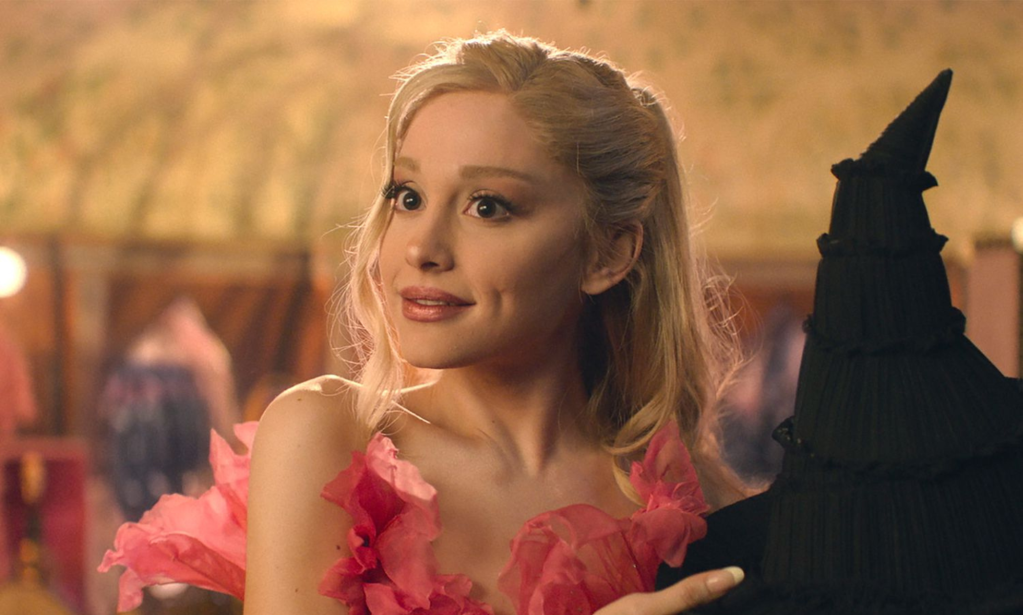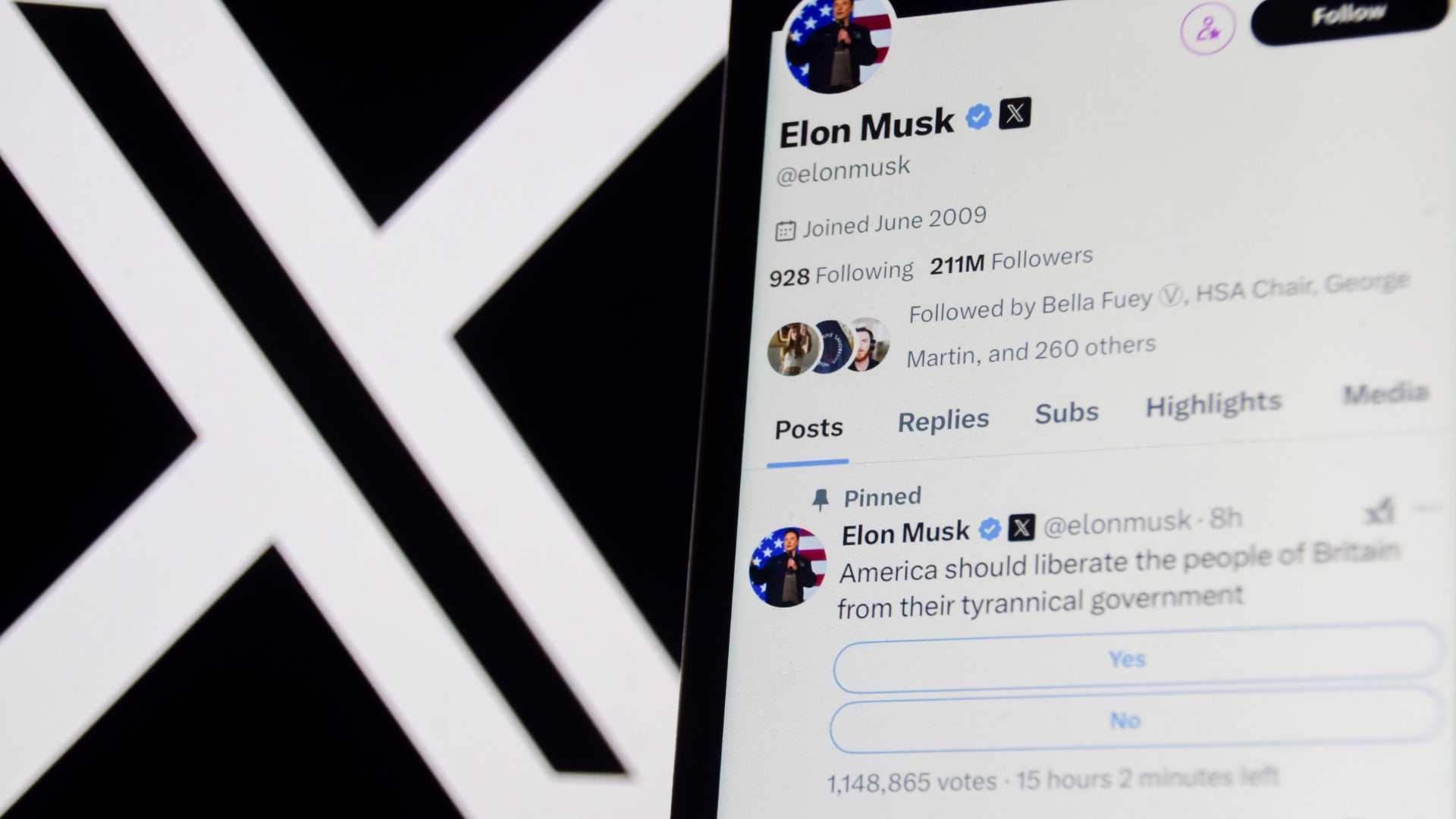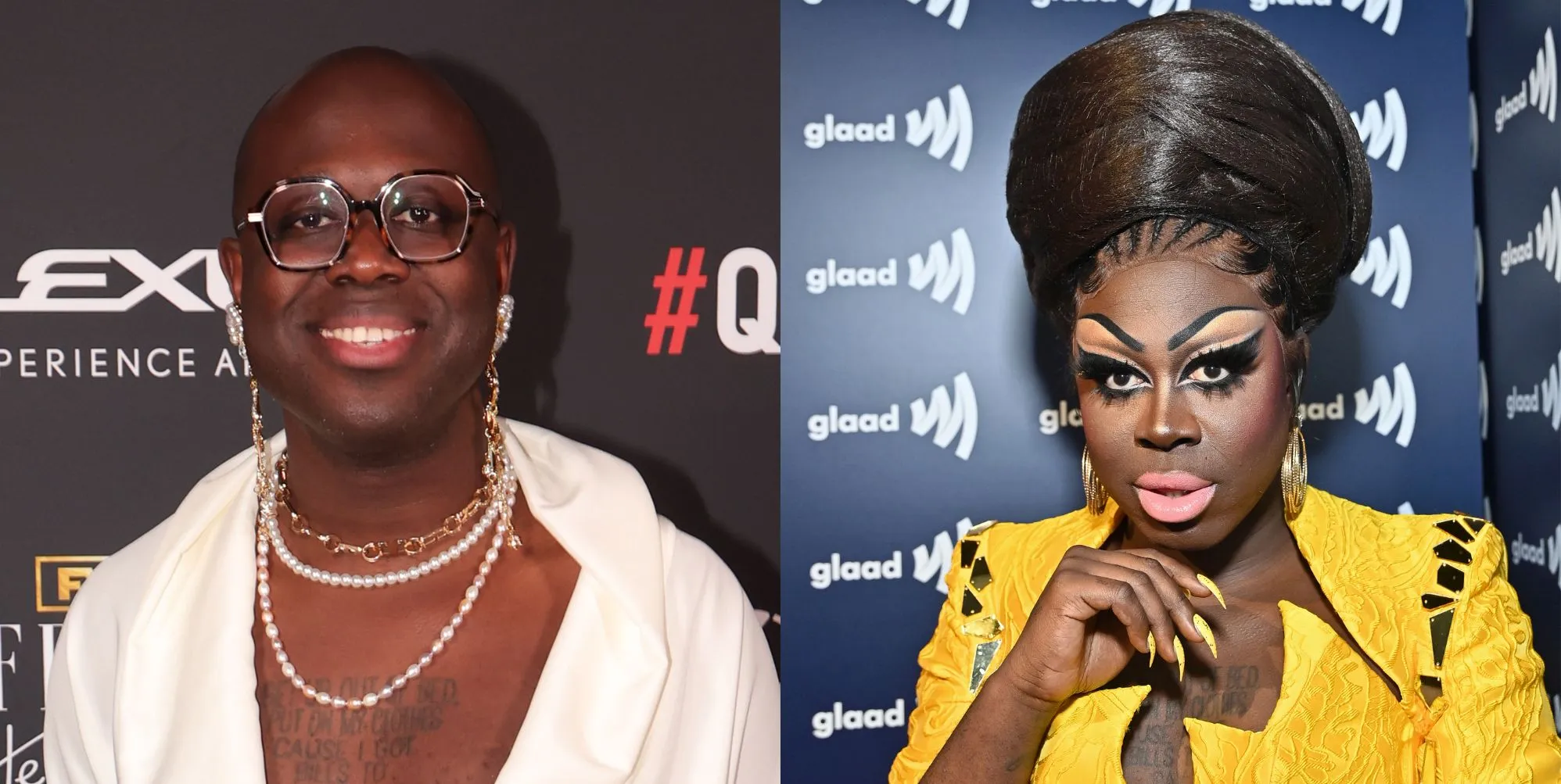Ariana Grande’s vocal coach spills on preparing her for Wicked
If you enjoyed listening to Ariana Grande singing “What is This Feeling?” in hit film Wicked, you’ve got one man to thank: Eric Vetro.
In fact, if you’ve enjoyed much of this year’s, or this century’s, best pop music, music-related films, or Broadway performances, it’s likely you have Vetro to thank. The vocal coach has taught some of the world’s most accomplished stars to become, well, accomplished stars, at his home studio, nestled in Toluca Lake, Los Angeles.
Grande is one of his oldest clients. He even gets a mention by name on “Monopoly”, her 2019 single that featured Victoria Monét.
“I’ve known her since she was 13, I’ve loved her since she was 13, I’ve worked with her since she was 13,” Vetro tells PinkNews from his studio, which is plastered with platinum records from just some of the A-list singers he’s mentored, such as Shawn Mendes, Sabrina Carpenter and Katy Perry. “To see this for her is just the most fulfilling, joyous experience I can ever imagine having.”
He’s talking, of course, about Wicked, the Jon M Chu musical epic adaptation that opened late last month after what feels like an eternity of waiting (the film version was first announced in 2012, when Grande was still part of her name-making Nickelodeon sitcom, Victorious).
Grande plays good witch Glinda and is the film’s comedic heart. She leads some of the punchiest musical moments, including “Popular” and “No One Mourns The Wicked”, with a coloratura soprano that her fans had never heard before, and which took many months working with Vetro to perfect.
“It’s just so emotional for me because she and I have talked about doing that movie for so many years,” he says. “It was her biggest dream in life.”
Vetro has form helping stars to land dream roles. In the past couple of years, he’s worked with Austin Butler for his role in Elvis, Halle Bailey in The Little Mermaid, and Lea Michele for her Broadway appearances in Funny Girl.
He also worked with Timothée Chalamet on last year’s Wonka and again for his upcoming lead role in the Bob Dylan biopic, A Complete Unknown. But he’s still not done: coming up are Maria, Angelina Jolie’s delve into the life of opera superstar Maria Callas, and Deliver Me from Nowhere, Jeremy Allen White’s Bruce Springsteen biopic.
At every turn, Vetro has helped them perfect the tone, style and specific delivery.
For the role of Glinda, Vetro worked with Grande ahead of her first audition (there were four). “She didn’t want it to be given to her because she’s a famous pop star. She wanted to earn it,” he recalls. “She wanted them to really want her and to know that she was the perfect person for it.
“The first time she went in, they asked her to sing for both roles but she was leaning towards Glinda.”
Grande made very little secret of her desire to star in the prequel to The Wizard of Oz, first tweeting about it in 2011. In 2019, she insisted she’d “do anything” to play Elphaba.
But, as Vetro says, somewhere along the way she changed her mind.
“She always thought she was more of a Glinda, and I think she was right. But she would have been great either way.” The pair had their own, “private little traditions… that were supposed to bring good luck,” he adds. “And they obviously did bring good luck.”

Grande is known for her staggering vocal range, an obvious tick next to her name during the audition process, but, for Glinda, she needed to park the whistle notes and adopt “a fuller, stronger, more operatic tone”.
She also had the unenviable task of embodying the Glinda whom Wicked fans had come to know and love ever since the role was originated by Kristin Chenoweth in 2003, while not falling into pure mimicry.
“She’s so respectful of everything she loves, Kristen Chenoweth was a bit of a mentor to her,” Vetro continues. “She’s known her since she was 10 years old, so she was very respectful to wanting to be true to the music, to what it was intended to be, what it was intended to sound like, but also put her own stamp on it.
“She does that so beautifully in so many of the songs.
“It makes me laugh, even during [‘What is This Feeling?’]… she almost just speaks it. She made it so real and so genuine that I can’t picture it done any other way. I can’t picture any other person doing that.”
Vetro’s “holistic” approach involves simple things such as ensuring the artists stay hydrated, that there is an array of breathing exercises, and reaffirming of what’s good and bad for vocals (not too much spicy food, no rowdy concerts or sports matches the day before the voice is needed).
Then, if clients are taking on the role of an existing voice, he moves on to pronunciation and accent, and “vocalising in character”.
It’s a process Jonathan Bailey undertook with Vetro too, for his role as Fiyero.

Vetro is full of praise for the star, saying: “People don’t realise what an amazing feat it was that he was able to even do this movie, because he was filming Bridgerton and Fellow Travelers, then Wicked.”
Across three days, Vetro would FaceTime his client, and see him on the three different sets, in two different countries.
Although Bailey grew up with musical theatre – he has an Olivier Award for his role in Company – his 10-minute showstopper “Dancing Through Life” in Wicked was a new beast.
“The dancing is quite strenuous,” says Vetro, and Bailey had to balance that with perfecting his voice. “He’s so talented. He has great taste, and, once again, he was very respectful of wanting to achieve exactly what they wanted him to achieve, and also put his own stamp on it, which I think he does.
“That was, to me, the most exciting part: that he made that singing effortless. People don’t realise that’s a hard song to sing. It sounds so easy, it’s not.”
Jonny surprised Eric Vetro (vocal coach) with a lovely gift ✨ pic.twitter.com/KKJfUMw4Zi
— ~ H 🪷 ~ (@kdlavs) December 14, 2023
While Wicked has consumed a fair chunk of Vetro’s time over the past few years, he’s still holding space for those who are trying to establish their own sound, rather than trying to channel the voice of another. Pop music is one of his greatest loves, and he’s responsible for shaping the voices of many of today’s brightest girlies, including Dove Cameron, Ava Max and Zara Larsson. He’s coached Sabrina Carpenter since she was a child.
When it comes to working with pop stars, his role varies. With one, he might be helping them build vocal stamina to complete a mammoth international tour, for another, he could be helping them strengthen their voice or alter their tone to discover the full potential of their vocal range.
“I love it when someone goes: ‘Oh, I didn’t know I could hit that note’, or ‘I didn’t know it could be that easy’. I live for that, it’s like mining for gold,” he jokes. “Then inside my head, I’m like, ‘Well, let’s see if I can get them a little higher. Let’s see if I get them a little stronger…”
The stars he works with all have large – and very opinionated – fandoms. Carpenter’s fans, for example, might flood social media insisting he mine that whistle register for her next album.
Does he need to respect them? “Well, yes, that is in the back of my mind,” he admits. “You can’t help but think of those things but I try not to let all the external things affect me.”
He often works seven days a week, without a holiday, and recently launched an eight-hour video vocal course on BBC Maestro, so anyone and everyone can benefit from his help.
Meanwhile, his client list continues to expand. He’s been working with TikTok star and Charli XCX protégé Addison Rae on “a couple movies” and for recent singles, “Diet Pepsi” and “Aquamarine.”
Addison Rae revealed that she recently worked with vocal coach, Eric Vetro.
He has worked with top tier artists like Ariana Grande, Katy Perry, Chloe x Halle, Camila Cabello, Shawn Mendes, Demi Lovato and more. pic.twitter.com/aosTBB4wFE
— Buzzing Pop (@BuzzingPop) December 27, 2022
Working with new and evolving talent is thrilling for him. “Addison has one of the great personalities, she really does. She walks into the room and you just can’t help but be in a good mood,” he says.
Sometimes, Vetro will hold eight, one-hour vocal coach sessions in a row. When he’s done, he’ll try to relax by switching on the TV, or listen to people talking on the radio. Often though, he ends putting music back on. It’s in his head and his heart, 24/7.
“I’m very, very lucky,” he admits.
Eric Vetro’s BBC Maestro course is available now.
Share your thoughts! Let us know in the comments below, and remember to keep the conversation respectful.







